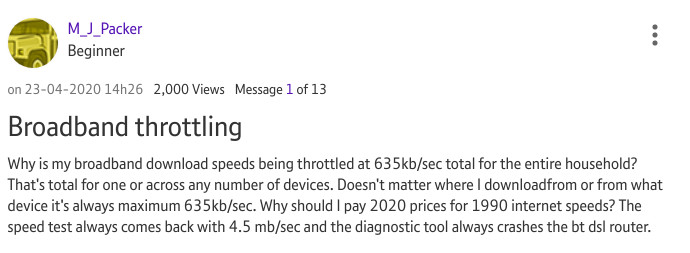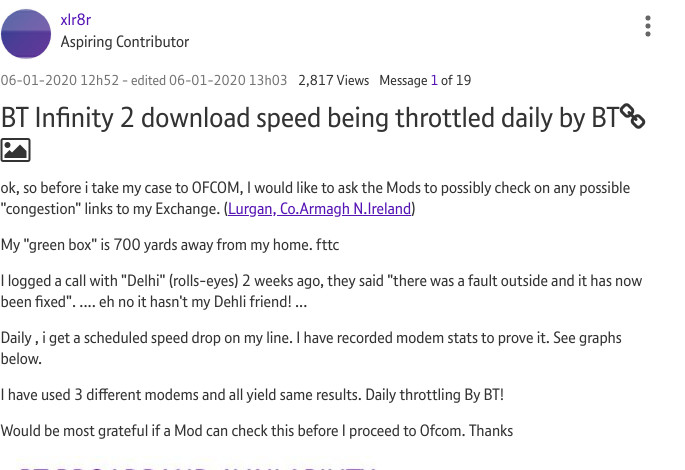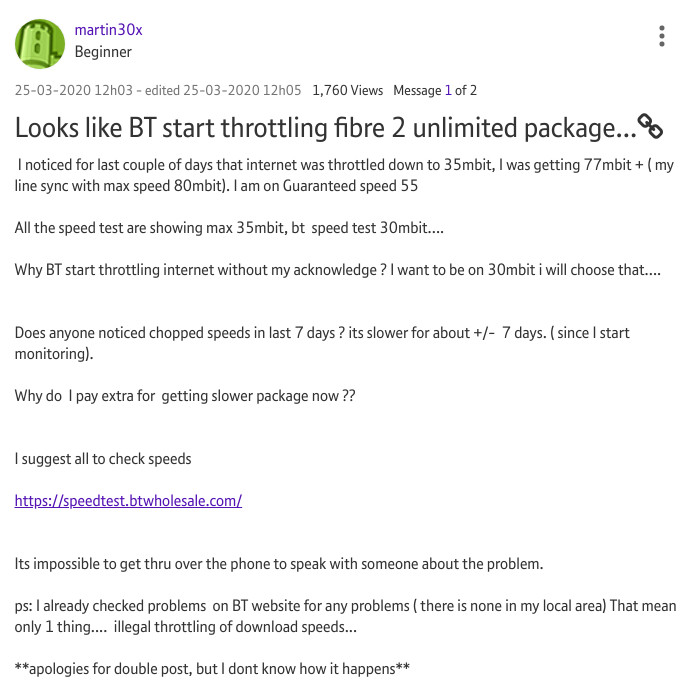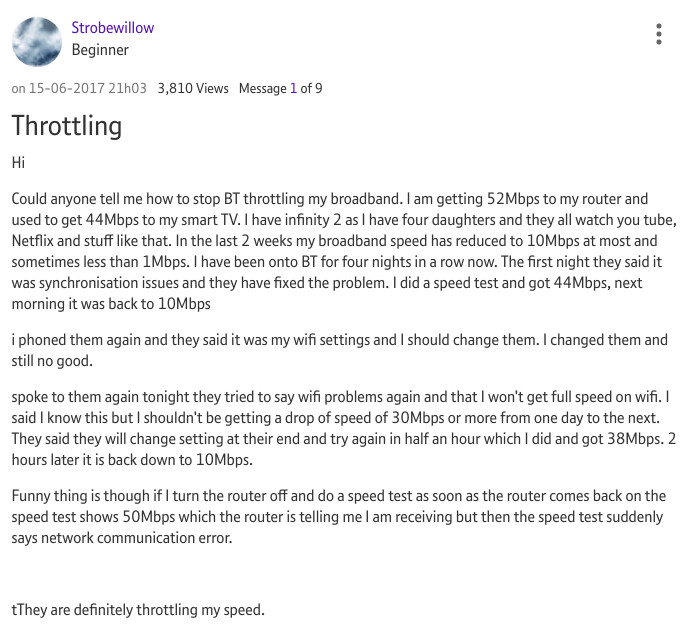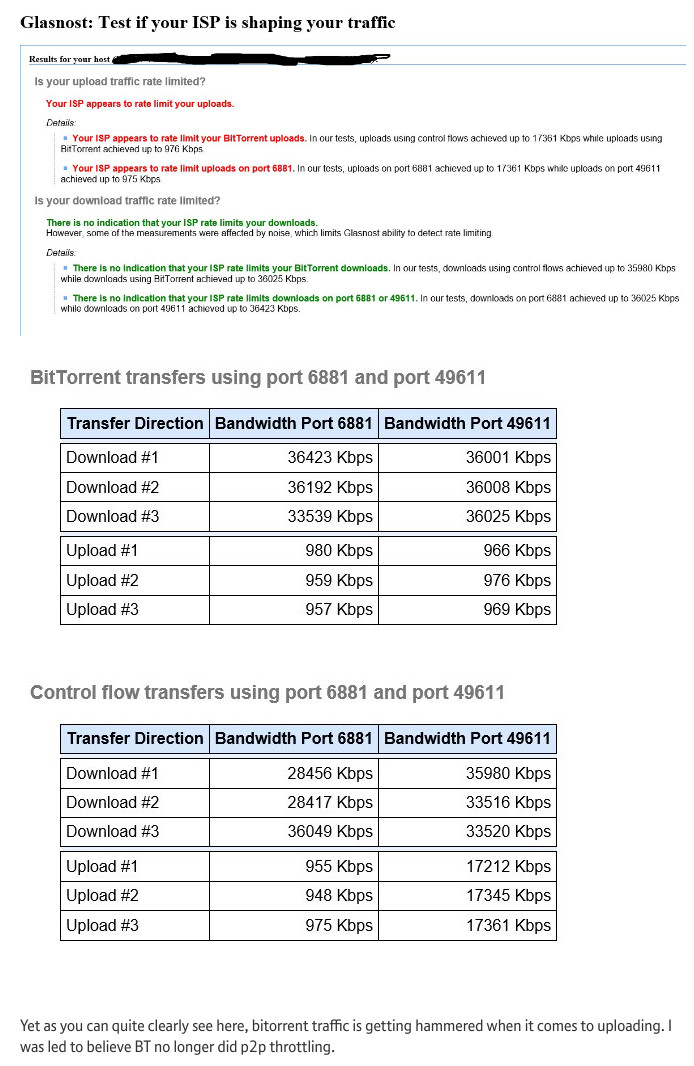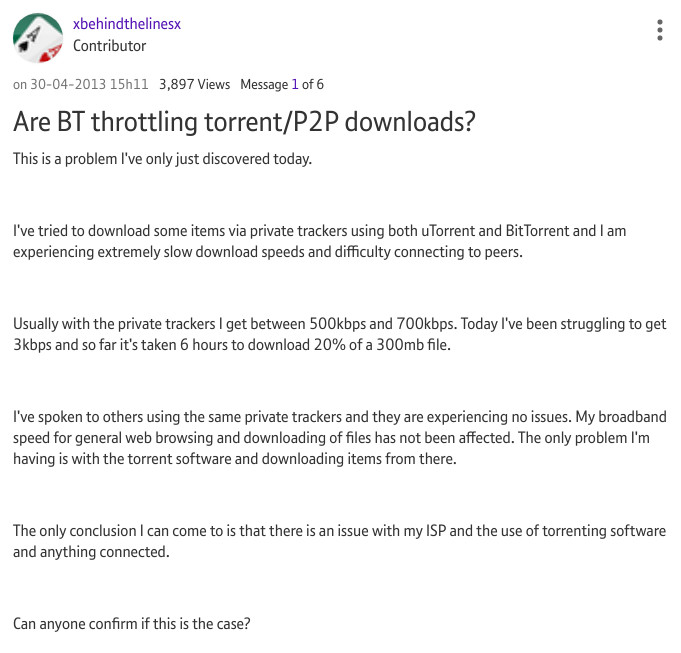

When you pay the ISP the cost of a brand new car (in less than a decade) and get (dis)service levels comparable with the 1990s
OVER the past month I've suffered a lot from my ISP. For two months I had maintained and improved (wrote some code for) an IPFS node at my home. At the start of this month my ISP (it's BT by the way) started retaliating. It took me some time to figure out the patterns and identity the so-called 'culprit'. I now have sufficient data to go ahead with a complaint, which I'm still assessing for its legal grounds and associated facts (it seems like I'm far from the only person affected by this, judging by online forums).
"My issue is part of a much broader problem that almost nobody talks about, certainly not the British press."I wrote about it thrice already in my personal blog [1, 2, 3]. It's a tad too personal for Techrights, where it's better to talk about such issues in more generalised terms. My issue is part of a much broader problem that almost nobody talks about, certainly not the British press. See the screenshots below (many of which from post-pandemic-induced-lock-downs Britain).
The stubborn move towards centralisation (for spying and censorship) is part of a worrisome trend. Those in positions of power want us to associate decentralisation itself with crime or "suspicious activity", in clear defiance of very basic human rights and long-established conventions. They want us all to embrace "Clown Computing" and outsource our computing -- communications included -- to corporations that engage in espionage on behalf of "partner" governments (the "good" governments, or hegemony-leaning allies).
 This is problematic on many levels.
This is problematic on many levels.
A lot of people have grown increasingly aware of the Internet purge or the mass censorship by Web giants. This isn't about some violent threat and it's not limited to the far right (if you think that it is, then congratulations! You've been conned!) because we hear more and more stories about left-leaning sites being suppressed if not outright banned/blacklisted. Social control media is a sieve for such an agenda, ranging from surveillance to propaganda (they get to choose what you see and what you do not see).
Ways around those social control mechanisms do exist. They're technical, as regulations and policies can't be relied on to accomplish much (they're scarcely and rarely enforced; they're also the product of corporate lobbying which renders these toothless, except in theory). The problem is, using techniques such as traffic-shaping/traffic-shaming/throttling/capping, "Big Telecom" cabals love to punish people who adopt alternatives. They work on that collectively and VPNs are barely the solution (not just because they're expensive and won't scale well).
There's a reason why we self-host all of our videos (they aren't being uploaded elsewhere) and offload stuff to IPFS. Those are technical decisions. They enhance our ability to express ourselves and proactively discourage legal threats (takedown attempts, like those we've received plenty of over the years, including several from Benoît Battistelli's EPO 'Mafia').
At the moment, due to my fight with my ISP (an ongoing dispute that has drained lots of resources, mostly time and sometimes lost work), IPFS is turned off at my side most of the day. Thankfully some people stepped up to take advantage of the distributed nature of IPFS, so our CIDs ought to be perpetually available, even when the Web site suffers downtime (we had almost 2 hours of downtime 2 days ago due to a massive DDOS attack).
Promoting Free software by challenging those who abuse it (if not those who directly attack Free software and free speech associated with the cause), with actions like naming and shaming those responsible for such abuses/attacks, is not easy. As we said the other day, it's not a "Walk In The Park"...
We've already mentioned people whose careers were sabotaged as retaliation for speaking out. Richard Stallman said a very long time ago that free speech and Free software are connected. To quote one example:
"'Free software' is a matter of liberty, not price. To understand the concept, you should think of 'free' as in 'free speech,' not as in 'free beer'."
